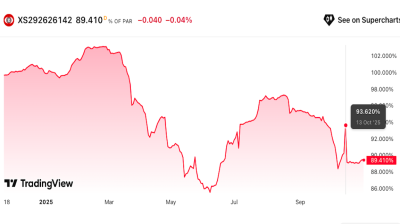On January 21, the Central Bank of Uzbekistan issued London-listed TBC Bank of Georgia with preliminary permission to establish a joint-stock commercial bank in Tashkent. In order to receive a banking licence, TBC must incorporate a local subsidiary and fulfil its capital and technical requirements, according to the central bank. With TBC’s technological infrastructure, which has helped it grow rapidly in recent years in the area of consumer lending, its entrance into Uzbekistan could be the catalyst for the modernisation of the antiquated banking sector in Uzbekistan.
With 30 banks in Uzbekistan, over the years the financial services industry has benefited from largely protectionist measures. There are only four local subsidiaries of international banks—Ziraat Bank from Turkey, KDB from Korea, Tenge Bank from Kazakhstan and Saderat from Iran. As the market has historically been closed, banks have had little incentive to digitise, provide good customer service or eliminate bottlenecks as there was more than enough business without having to address a need to invest-to-compete.
Banking landscape
With some foreign banks entering the market—Halyk Bank’s entrance in 2019 came through its local subsidiary Tenge Bank, and the TBC arrival is ahead—the banking landscape is set to change as foreign banks have access to cheaper capital than their domestic peers and are also more likely to be willing to fight for market share. TBC in particular offers an edge of scalability through its plans for a digital banking platform focused on consumer finance which will decrease friction for clients and enable it to expand its presence nationwide, focusing on customer service and a diverse product offering, rather than a nationwide physical branch buildout.
During the spring of last year, TBC acquired a 51% stake in Payme, the largest fintech mobile application in Uzbekistan. With over 1.3mn users, it enables bank and stock brokerage accounts to be synced, money to be transferred, loans to be repaid and utility bills to be paid, among many other options.
Waking up
The ramifications could be significant for local banks that are only just waking up to the fact that cut-throat competition is upon them. In contrast to poor customer service, long lead times on loan approvals and the need to regularly visit physical branches where long waits can ensue, TBC offers the promise of a relatively seamless platform which could help to transform Uzbekistan’s banking sector and also decrease friction costs for financial services, particularly in the countryside.
The future of Uzbekistan’s financial services industry is bright and growing fast, yet the under-capitalisation of the local banking sector needs to be resolved if local banks are going to compete with the likes of a TBC. As Uzbekistan continues its reforms and opening up to the world, the sector will be an exciting one to watch. Of course, if TBC does indeed obtain its banking licence with no hitches, the one group that will clearly benefit is that of the average consumer.
Scott Osheroff is CIO of the Asia Frontier Capital (AFC) Uzbekistan Fund, which was launched in March, 2019. It aims to achieve long-term capital appreciation for investors by capturing the value and growth potential in the recently liberalised economy of Uzbekistan.
Opinion

COMMENT: Czechia economy powering ahead, Hungary’s economy stalls
Early third-quarter GDP figures from Central Europe point to a growing divergence between the region’s two largest economies outside Poland, with Czechia accelerating its recovery while Hungary continues to struggle.

COMMENT: EU's LNG import ban won’t break Russia, but it will render the sector’s further growth fiendishly hard
The European Union’s nineteenth sanctions package against Russia marks a pivotal escalation in the bloc’s energy strategy, which will impose a comprehensive ban on Russian LNG imports beginning January 1, 2027.

Western Balkan countries become emerging players in Europe’s defence efforts
The Western Balkans could play an increasingly important role in strengthening Europe’s security architecture, says a new report from the Carnegie Europe think-tank.

COMMENT: Sanctions on Rosneft and Lukoil are symbolic and won’t stop its oil exports
The Trump administration’s sanctions on Russian oil giants Rosneft and Lukoil, announced on October 22, may appear decisive at first glance, but they are not going to make a material difference to Russia’s export of oil, says Sergey Vakulenko.

b_Cropped.jpg)


